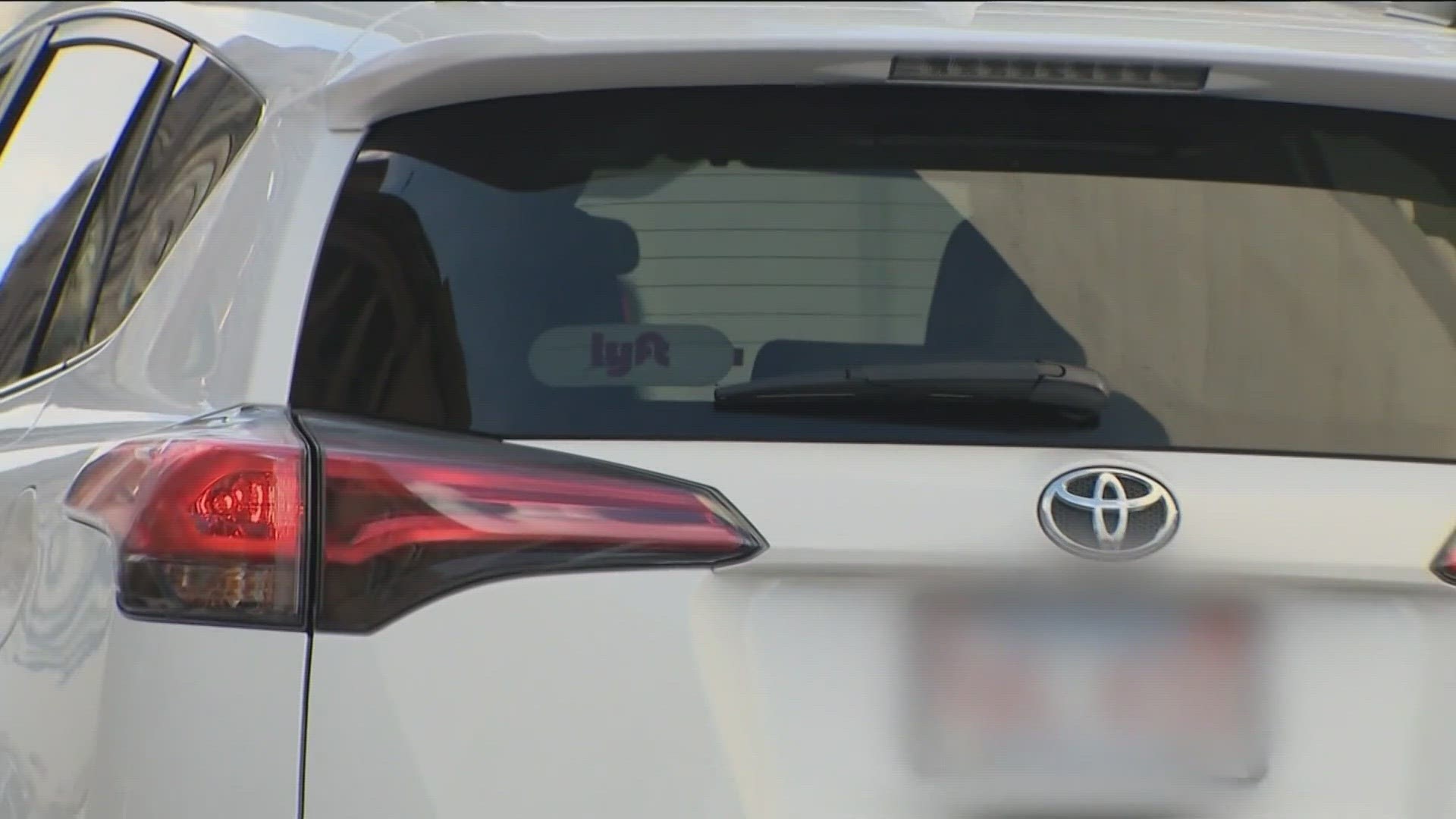MINNEAPOLIS — For a second year, Minneapolis drivers are demanding a pay raise. However, stakeholders are disagreeing about how much of a raise rideshare companies should give drivers.
"Uber and Lyft are finessing us, and they're finding creative and strategic ways to take money out of our pockets," a Minnesota Uber/Lyft Drivers Association member said at a city committee public hearing last week.
This Thursday, the city council is set to vote on a plan that would require rideshare companies to increase wages, but Uber and Lyft are threatening to leave the market April 1 if it passes.
The concern is if driver pay goes up, rider fare will too, potentially causing riders, including low-income customers, to reduce or stop ordering rides.
Mayor Jacob Frey held a press conference Wednesday urging council not to pass the ordinance.
"I just want to call out ahead of time that there is a way to do this right," Frey said. "I hope I'm wrong, but I predict the council will pass the exact same ordinance I vetoed last year, and then I'm going to veto it."
Authored by council members Jason Chavez, Jamal Osman and Robin Wonsley, the current proposal would pay drivers $1.40 per mile and $0.51 per minute. They say that's equivalent to the city's $15.57 minimum wage.
However, in a letter addressed to the council and mayor this week, Lyft said the proposed per-mile, per-minute rate would result in the company paying drivers more like $50 an hour.
Mayor Frey emphasized that he supports more than doubling driver pay, and says a compromise could be lowering the proposal to $1.20 per mile and $0.34 minute to ensure services continue.
"Rather than have this back-and-forth ordinance put forward followed by veto, followed by override or not override, we could agree to agree on both increasing the driver pay," he said. "In fact more than doubling the rate of pay, and keeping this very important service in our city."
Another point of contention is that Lyft says it wasn't invited to meet or work with council members or city agencies while the city conducted a rideshare study.
"They did not engage with all of the stakeholders," the mayor said.
Council Member Osman tells KARE 11 that staff did reach out to the rideshare companies, and says the companies didn't reach out during the public process, which included community engagement sessions and a public hearing.
He added that he's "extremely disappointed" in the mayor's messaging, and says drivers are angry. He emphasized that Minneapolis' rideshare drivers include many immigrants and people of color.
If the rideshare ordinance passes and the mayor vetoes it, council can override the veto with nine votes. Osman said those behind the proposal are close to securing the necessary votes.
Council Member Chavez provided the following statement in response to the mayor's remarks:
"We met with Lyft to hear out their concerns. The per minute and per mile rates that the City Council is proposing were developed specifically for Minneapolis by Mayor Frey's Administration. Mayor Frey keeps talking about doubling wages, but $8 from $4 an hour is still far below the City's minimum wage. Continuing to allow Uber and Lyft to exploit a loophole in our city policy is a slap in the face to drivers. Drivers here locally are overwhelming Black and Brown and they deserve the same protections we extend to all workers."
-Council Member Jason Chavez
Council President Elliot Payne also provided a response:
“I recently had the opportunity to meet with Lyft. In that meeting, they shared their sincere commitment to ‘develop policies that provide Minnesota rideshare drivers with a minimum earnings guarantee and other protections.’ Even if you give Lyft the benefit of the doubt and assume that they are as committed to their drivers on pay and protections as they are to their investors on running a profitable business worthy of a multi-billion-dollar valuation, they haven't demonstrated their ability to deliver on those commitments. The market has given these companies over a decade to prove the validity of these business models, largely without much regulation, and the proof is in the balance sheet. It's time for rideshare companies to figure out a sustainable business model that isn't predicated on exploiting drivers.”
- Council President Elliot Payne
Watch more local news:
Watch the latest local news from the Twin Cities and across Minnesota in our YouTube playlist:

